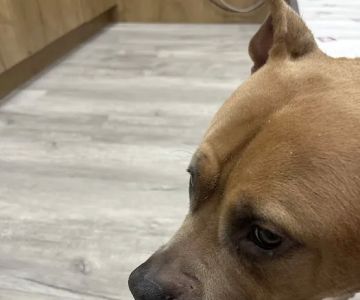- 1. Introduction to Veterinary Programs at UVA
- 2. Does UVA Have a Veterinary Program?
- 3. Alternative Veterinary Programs in Virginia
- 4. Steps to Become a Veterinarian in Virginia
- 5. UVA Pre-Veterinary Pathways
- 6. The Role of UVA in Veterinary Education
- 7. Conclusion: For Aspiring Vets in Virginia
1. Introduction to Veterinary Programs at UVA
For those considering a career in veterinary medicine, choosing the right school is an essential part of the journey. Veterinary programs provide the knowledge, skills, and practical experience needed to care for animals and pursue a career that involves both science and compassion. Aspiring veterinarians often look for schools with a strong reputation, high-quality programs, and the resources to help them succeed. Among those considering schools in Virginia, the University of Virginia (UVA) is often a top choice. However, many future vet students wonder whether UVA offers a veterinary program.
In this article, we’ll explore whether UVA has a veterinary program and discuss the options available for students in Virginia who wish to pursue a career in veterinary medicine. While UVA itself doesn’t have a traditional veterinary school, there are pathways for students to prepare for veterinary school through pre-veterinary programs, collaborations, and partnerships with other universities offering veterinary education. Let’s take a closer look at the various routes aspiring veterinarians can take in Virginia and what UVA has to offer in this regard.
2. Does UVA Have a Veterinary Program?
Currently, the University of Virginia (UVA) does not offer a standalone veterinary program or a veterinary school. Unlike some other institutions with dedicated veterinary colleges, UVA does not provide a direct path to a veterinary degree. However, UVA offers a range of academic opportunities for students interested in pursuing veterinary medicine, including pre-veterinary programs and a strong focus on the sciences, which are essential for admission to veterinary schools.
While UVA itself does not offer veterinary degrees, it provides students with a robust foundation in biology, chemistry, and other related fields, which are important prerequisites for applying to veterinary programs. In fact, many UVA graduates go on to attend veterinary schools across the country, leveraging the university's rigorous academic programs as a springboard into the field of veterinary medicine.
In the next sections, we’ll look at the alternative options for students who wish to pursue a career in veterinary medicine in Virginia and beyond. We’ll also explore how UVA’s pre-veterinary tracks and academic resources can help you on your journey toward becoming a veterinarian.

1720 Clements Bridge Rd, Deptford, NJ 08096, USA
See Details3. Alternative Veterinary Programs in Virginia
While UVA does not offer a veterinary program directly, Virginia has other options for aspiring veterinarians. One key option is the Virginia-Maryland College of Veterinary Medicine (VMCVM), located at Virginia Tech in Blacksburg, Virginia. This veterinary school offers a Doctor of Veterinary Medicine (DVM) program and is one of the leading veterinary schools in the country. Students from UVA who complete their pre-veterinary studies can apply to VMCVM for their professional veterinary education.
VMCVM offers comprehensive training in veterinary medicine, with opportunities for specialization in various fields, such as small animal medicine, large animal medicine, and emergency care. For students who want to stay in Virginia for their veterinary education, VMCVM is a top choice, as it has a strong reputation and is accessible for those who’ve completed their pre-vet courses at schools like UVA.
4. Steps to Become a Veterinarian in Virginia
Becoming a veterinarian is a multi-step process, and for students in Virginia, this process typically begins with obtaining a strong foundation in the sciences. Here are the general steps to become a veterinarian:
4.1. Obtain a Bachelor’s Degree
Before attending veterinary school, aspiring veterinarians must complete a bachelor’s degree. UVA offers several programs in the biological sciences, such as biology, biochemistry, and animal science, that are ideal for students looking to prepare for veterinary school. A strong academic record in these fields is essential for gaining admission to a veterinary program.
4.2. Complete Pre-Veterinary Requirements
Students who wish to apply to veterinary school need to meet specific pre-veterinary requirements, which include coursework in areas like anatomy, physiology, and animal behavior. UVA provides the necessary academic resources to complete these requirements, and students can also gain experience through internships and volunteering at animal clinics to strengthen their application.
4.3. Apply to Veterinary School
After completing the required courses and gaining relevant experience, students can apply to veterinary schools. While UVA does not have its own veterinary program, students can apply to programs like VMCVM or other veterinary schools across the country. Admission to veterinary schools is competitive, and applicants typically need to take the GRE or a similar exam, along with providing letters of recommendation and proof of hands-on animal experience.
5. UVA Pre-Veterinary Pathways
Although UVA doesn’t offer a veterinary school, the university provides excellent pre-veterinary pathways that help students prepare for veterinary programs. These pathways are designed to help students complete the necessary academic requirements while gaining valuable experience in the field of animal care. Some of the ways UVA supports pre-veterinary students include:
5.1. Academic Support
UVA’s biology and chemistry departments offer rigorous courses that are critical for veterinary school preparation. Students can also access academic advisors who specialize in pre-veterinary education, ensuring they stay on track with their course requirements and application timelines.
5.2. Animal Care Experience
UVA students can gain hands-on experience by volunteering at local animal shelters, veterinary clinics, or research labs. These experiences help students build the skills needed for veterinary school applications and give them a better understanding of the daily responsibilities of a veterinarian.
5.3. Research Opportunities
UVA also offers research opportunities in animal science and veterinary medicine. Engaging in research allows students to deepen their knowledge of veterinary science and build a competitive edge when applying to veterinary programs.
6. The Role of UVA in Veterinary Education
While UVA doesn’t have a veterinary school, the university plays an important role in shaping the next generation of veterinarians by providing a strong foundation in the sciences, fostering research opportunities, and offering career counseling for those pursuing veterinary medicine. UVA graduates are well-prepared for success in veterinary school, and many have gone on to attend leading veterinary programs in the U.S., including the Virginia-Maryland College of Veterinary Medicine and others.
UVA’s focus on academic excellence, combined with its proximity to VMCVM, makes it a great choice for students who want to pursue a veterinary career. By starting their education at UVA, students can make a seamless transition to veterinary school and be well-prepared for the rigorous training ahead.
7. Conclusion: For Aspiring Vets in Virginia
While the University of Virginia does not have a veterinary program, it provides aspiring veterinarians with the academic foundation, resources, and pre-veterinary pathways necessary to succeed in veterinary school. Students can take advantage of UVA’s strong science programs, research opportunities, and hands-on animal care experience to prepare for application to top veterinary schools like the Virginia-Maryland College of Veterinary Medicine.
For those looking to pursue a veterinary career, UVA is an excellent starting point in Virginia. And once you’re ready to take the next step, institutions like VMCVM offer high-quality education and hands-on training to help you become a licensed veterinarian.
For more guidance on pre-veterinary education or veterinary programs, visit Hidden Brook Veterinary for expert resources and recommendations on how to prepare for your veterinary career.










